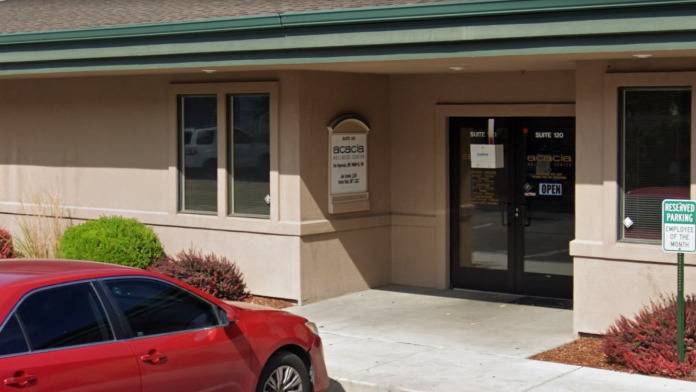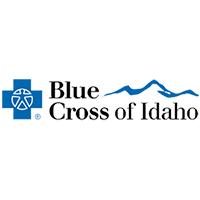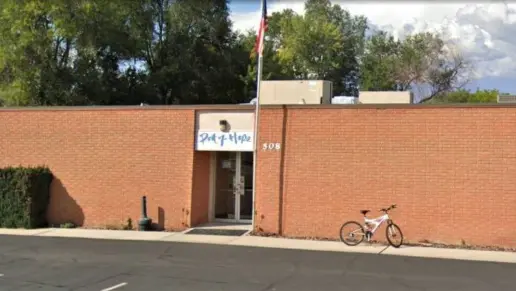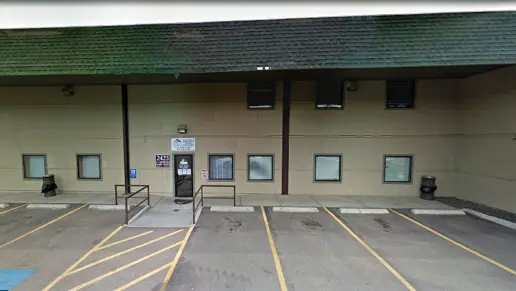They have specific units for each step of your treatment. They help you from when you accept your problem then to teach you how to face it. The staff is very understanding and they are excellent people.
About Acacia Wellness Center
The Acacia Wellness Center provides primary medical care and mental health care surrounding substance abuse addiction to men and women. You'll find 'em located out in Nampa, Idaho. If you choose this facility, expect to receive recovery treatment from professionals who understand the challenges of addiction and co-occurring mental health disorders.
At this center, you can expect a wide range of services to help you through your addiction. These can include individual and group counseling with healthcare professionals who genuinely care about you. What’s interesting about this center is that it is women-owned and operated, so you can expect compassionate care.
The Acacia Wellness Center also provides medication-assisted treatment (MAT) for those who might be having trouble overcoming withdrawal and craving symptoms. A nurse practitioner with more than 25 years of experience administers this medication, which is FDA-approved. I like how they also offer Spravato as an option to treat depression.
Besides medication-assisted treatment, holistic treatment plans are also offered based on individual needs. Many have also chosen this center because of its friendly and communicative staff and top-notch treatment methods and because it provides telehealth. This is incredibly convenient for you if you qualify to receive treatment online or over the phone.
You might also find it beneficial that this center offers psychiatric evaluations, medication management, and crisis services. So, no matter if you’re beginning your journey toward sobriety or are neck deep in it, this facility could potentially be what you need.
Contact the center to determine if you have coverage or if payment arrangement plans are available. Most insurers are accepted, but it’s best to confirm before enrolling.
Latest Reviews
Rehab Score
Gallery

Location
Accepted Insurance
Other Forms of Payment
Private insurance refers to any kind of healthcare coverage that isn't from the state or federal government. This includes individual and family plans offered by an employer or purchased from the Insurance Marketplace. Every plan will have different requirements and out of pocket costs so be sure to get the full details before you start treatment.
Self-pay involves paying for treatment out of your own pocket. You can use savings or credit, get a personal loan, or receive help from family and friends to fund your treatment. If you don't have insurance or your insurance plan doesn't cover a specific program, self-pay can help ensure you still get the care you need.
Financial aid can take many forms. Centers may have grants or scholarships available to clients who meet eligibility requirements. Programs that receive SAMHSA grants may have financial aid available for those who need treatment as well. Grants and scholarships can help you pai for treatment without having to repay.
Sliding scale payments are based on a client's income and family size. The goal is to make treatment affordable to everyone. By taking these factors into account, addiction recovery care providers help ensure that your treatment does not become a financial burden to you or your family, eliminating one barrier to care.
Medicare is a federal program that provides health insurance for those 65 and older. It also serves people under 65 with chronic and disabling health challenges. To use Medicare for addiction treatment you need to find a program that accepts Medicare and is in network with your plan. Out of pocket costs and preauthorization requirements vary, so always check with your provider.
Military members, veterans, and eligible dependents have access to specific insurance programs that help them get the care they need. TRICARE and VA insurance can help you access low cost or no cost addiction and mental health treatment. Programs that accept military insurance often have targeted treatment focused on the unique challenges military members, veterans, and their families face.
Medicaid is a state based program that helps lower-income individuals and families pay for healthcare. Medicaid covers addiction treatment so those enrolled can use their coverage to pay for rehab. When a program accepts Medicaid the client often pays very little or nothing out of their own pocket.
Addiction Treatments
Levels of Care
Treatments
Many of those suffering from addiction also suffer from mental or emotional illnesses like schizophrenia, bipolar disorder, depression, or anxiety disorders. Rehab and other substance abuse facilities treating those with a dual diagnosis or co-occurring disorder administer psychiatric treatment to address the person's mental health issue in addition to drug and alcohol rehabilitation.
Mental health rehabs focus on helping individuals recover from mental illnesses like bipolar disorder, clinical depression, anxiety disorders, schizophrenia, and more. Mental health professionals at these facilities are trained to understand and treat mental health issues, both in individual and group settings.
Programs


Clinical Services
Cognitive Behavioral Therapy (CBT) is a therapy modality that focuses on the relationship between one's thoughts, feelings, and behaviors. It is used to establish and allow for healthy responses to thoughts and feelings (instead of unhealthy responses, like using drugs or alcohol). CBT has been proven effective for recovering addicts of all kinds, and is used to strengthen a patient's own self-awareness and ability to self-regulate. CBT allows individuals to monitor their own emotional state, become more adept at communicating with others, and manage stress without needing to engage in substance abuse.
Dialectical behavior therapy involves individual and group sessions. During individual sessions, you will work on managing intense emotions. Group skills training sessions aim to enhance skills for daily living. They focus on mindfulness, distress tolerance, interpersonal effectiveness, and emotion regulation.
Group therapy is any therapeutic work that happens in a group (not one-on-one). There are a number of different group therapy modalities, including support groups, experiential therapy, psycho-education, and more. Group therapy involves treatment as well as processing interaction between group members.
In individual therapy, a patient meets one-on-one with a trained psychologist or counselor. Therapy is a pivotal part of effective substance abuse treatment, as it often covers root causes of addiction, including challenges faced by the patient in their social, family, and work/school life.
Unlike other more coercive methods, motivational interviewing does not impose change on the client. Instead, the therapist asks questions, listens, and reflects the client's thoughts back to them. This helps the person come to their own conclusions and supports making changes on their own terms based on those conclusions.
Trauma therapy addresses traumatic incidents from a client's past that are likely affecting their present-day experience. Trauma is often one of the primary triggers and potential causes of addiction, and can stem from child sexual abuse, domestic violence, having a parent with a mental illness, losing one or both parents at a young age, teenage or adult sexual assault, or any number of other factors. The purpose of trauma therapy is to allow a patient to process trauma and move through and past it, with the help of trained and compassionate mental health professionals.
Whether a marriage or other committed relationship, an intimate partnership is one of the most important aspects of a person's life. Drug and alcohol addiction affects both members of a couple in deep and meaningful ways, as does rehab and recovery. Couples therapy and other couples-focused treatment programs are significant parts of exploring triggers of addiction, as well as learning how to build healthy patterns to support ongoing sobriety.
Research clearly demonstrates that recovery is far more successful and sustainable when loved ones like family members participate in rehab and substance abuse treatment. Genetic factors may be at play when it comes to drug and alcohol addiction, as well as mental health issues. Family dynamics often play a critical role in addiction triggers, and if properly educated, family members can be a strong source of support when it comes to rehabilitation.
Part of recovery is replacing unhealthy habits with healthy life skills. These include psychological skills and social skills that allow you to thrive post treatment. While in rehab in Idaho, you'll work on developing these skills so you have the tools you need for a new life.
Amenities
-
Private Setting
Contact Information
217 W Georgia Ave
Suite 120
Nampa, ID 83686





